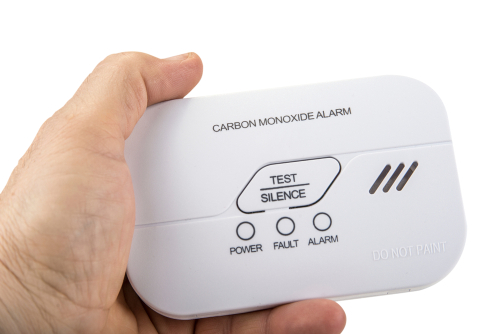Propertymark is backing the installation of carbon monoxide alarms in all residential buildings in Wales.
The Welsh Government is proposing to amend the current guidance to include the installation of carbon monoxide alarms alongside the installation of a flued fixed combustion appliance of any fuel type in all residential dwellings, including private rented housing.
The policy will mean that all the following fuel types will be covered: oil, gas (including LPG) and solid fuel.
Propertymark says that whilst statistics show that deaths from carbon monoxide poisoning are relatively low, they are avoidable and it is the view of some medical experts that carbon monoxide poisonings are wrongly diagnosed and under-reported, meaning deaths and injuries could be much higher.
Therefore, Propertymark has shown its support for the Welsh Government’s proposal to amend the Building Regulations to require carbon monoxide alarms to be fitted alongside the installation of a flued fixed combustion appliance of any fuel type.
The trade body has also called on the Welsh Government to amend the regulations so that carbon monoxide alarms in integrated spaces such as garages and lofts that contain a flued devise that is connected to the main house are also installed.
While on the one hand, these spaces can be well-ventilated, it says that it believes that it is still possible for carbon monoxide to build up in these areas and leak into the main house.
Alongside this, while Propertymark says it acknowledges the risk that carbon monoxide build up is lower in integrated spaces, the consultation points out that it is becoming an increasingly common practice to locate household boilers in garages and lofts.
Therefore, by ensuring carbon monoxide alarms are located in these spaces it would further limit risk of death as poorly maintained boilers pose a risk with blocked flues where the risk of carbon monoxide is increased and also if a garage is connected to a home.
As well as in integrated spaces, Propertymark has said that where a flue passes through spaces such as a bedroom, they should be also included as part of the proposals. The trade body explained that if there was a failure in the flue at the point of passing through a bedroom, such as a blockage or leak, then the outcome could be fatal for occupants within a bedroom as many people who die of carbon monoxide poisoning do so while sleeping.
Tim Thomas, Policy Officer at Propertymark comments: “The safety of contract holders and all that are within a property must be paramount, especially with regards to carbon monoxide so by extending the regulations it will provide additional levels of protection.
“However, we know that for the private rented sector in Wales, ensuring properties are compliant and safe must be achieved in a practical and deliverable way for landlords and their letting agents.”
With so many checks required on the first day of occupancy, the industry body has acknowledged that it is not always feasible for landlords and agents to conduct carbon monoxide alarm checks on the first day of tenancy, especially for agents who are managing multiple tenancy check ins at the same time.
Additionally, current Fitness for Human Habitation Regulations only require carbon monoxide alarms to be in repair and proper working order, with no specific requirements for testing.
Propertymark does not believe this is adequate for ensuring the safety of tenants.
Therefore, the body is also recommending the introduction of requirements that ensure tests are carried out before the tenancy starts, without a prescribed lead in time, and at regular intervals throughout the tenancy such as every six months. It says that this would then allow property agents the time to adequately assess the risk of carbon monoxide poisoning.













%20-%20IMAGE%20Client%20Accounting%20%E2%80%93%20what%20are%20your%20options.jpg)










Join the conversation
Be the first to comment (please use the comment box below)
Please login to comment